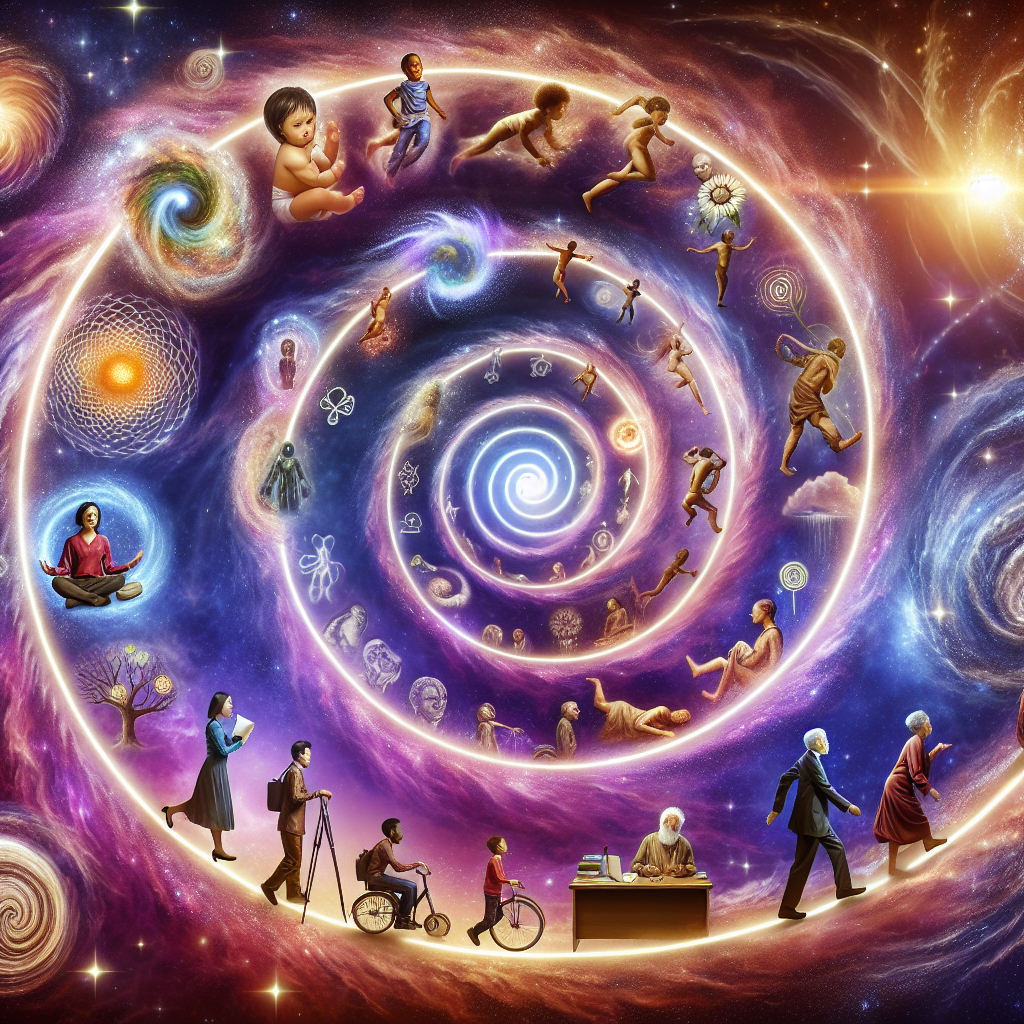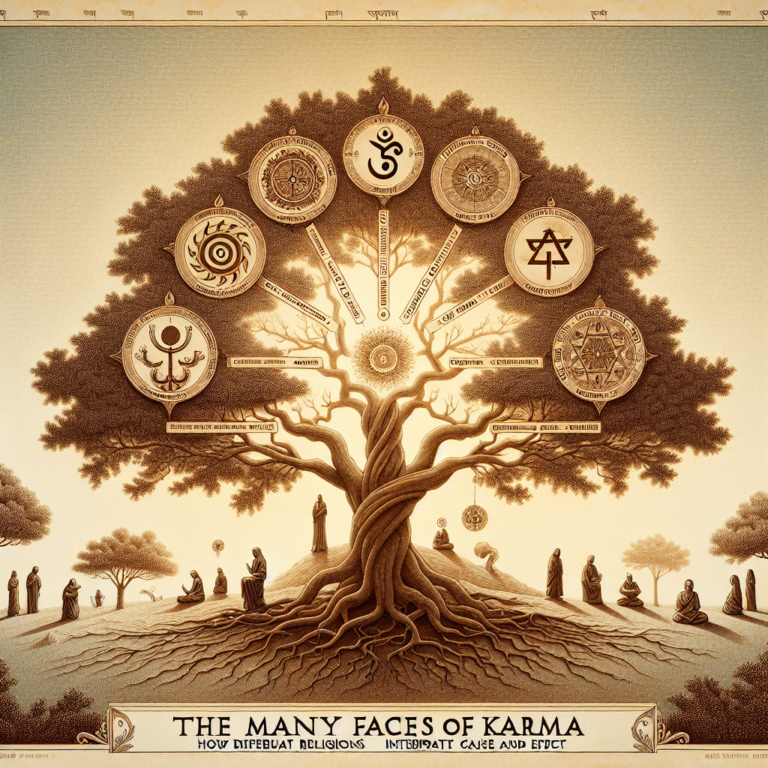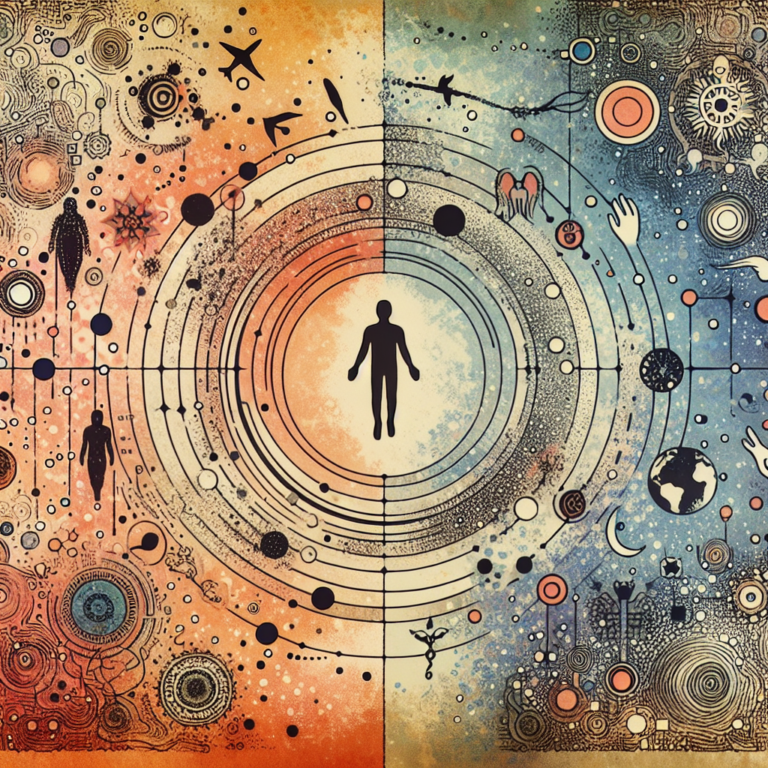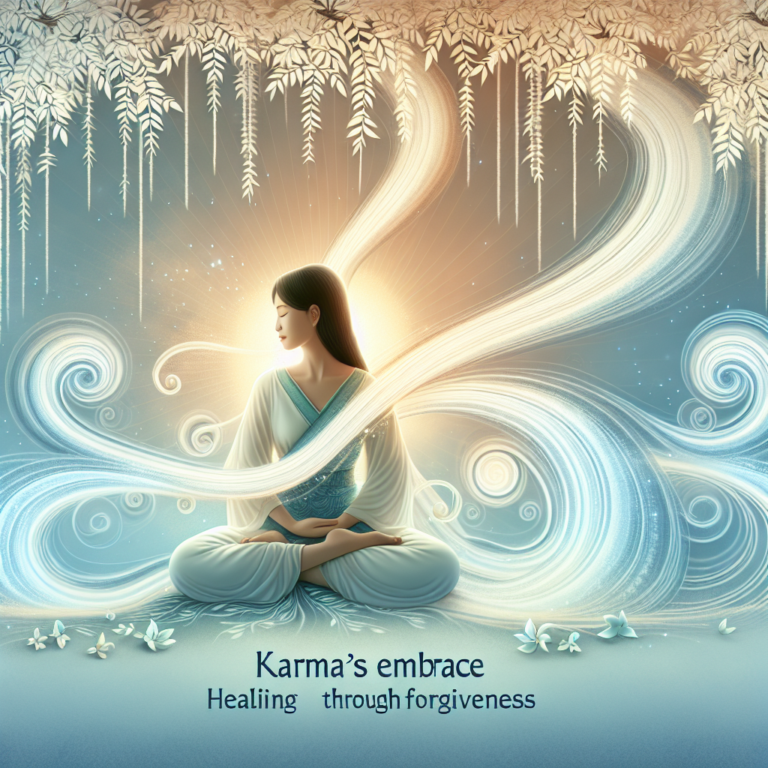Karma and reincarnation are two profound concepts entwined deeply within the philosophy and spiritual beliefs of many Eastern religions, notably Hinduism, Buddhism, Jainism, and Sikhism. They provide important frameworks for understanding life’s cycles, individual purpose, and the spiritual journey of every soul. The interplay between karma and reincarnation creates a complex tapestry that not only influences human behavior but also shapes the very fabric of existence.
The Concept of Karma
At its core, karma refers to the principle of cause and effect, where every action has a corresponding reaction. The term itself originates from the Sanskrit word "karman," which means "action" or "deed." In this worldview, actions can be physical, verbal, or mental, and they accumulate over a lifetime, forming a "karmic ledger" that influences a person’s current and future experiences.
Types of Karma
Karma can be classified into three main types:
Sanchita Karma: This is the accumulated karma from all past lifetimes, representing a person’s total karmic debt. It encompasses both positive and negative actions that have been performed throughout a soul’s journey.
Prarabdha Karma: This is the portion of sanchita karma that is active or current—meaning it is responsible for the present circumstances one is experiencing in their current life. It determines one’s life situations, relationships, and challenges.
- Agami Karma: This refers to the karma that is being created in the present moment, which will affect future incarnations. Every action taken in this lifetime will influence the circumstances that arise in the next.
Understanding these types of karma helps individuals recognize that their actions have profound implications not just in the present but across multiple lifetimes.
The Cycle of Reincarnation
Reincarnation refers to the cycle of birth, death, and rebirth, wherein the soul transcends bodily existence only to be reborn in a new form. This cycle, known as samsara, is driven by the karmic debts and virtues accumulated over lifetimes. The fundamental belief is that life is not a linear journey but rather a continuous process of learning, growth, and evolution.
The Journey of the Soul
When an individual passes away, it is believed that their soul leaves the physical body and enters a new domain, ultimately guided by its karmic record. The nature of this new life is determined by the cumulative karma from previous lives. For instance, a life characterized by virtuous actions and selfless service may grant the soul a more favorable reincarnation, while a life steeped in negativity and harm may lead to a more challenging existence.
Liberation from Reincarnation
The ultimate goal in many Eastern traditions is to escape the cycle of samsara altogether—a state known as moksha in Hinduism or nirvana in Buddhism. Achieving liberation signifies the end of all suffering and the realization of one’s true self, transcending the material conditions of existence. It is believed that through righteous living, self-realization, and spiritual discipline, one can achieve this ultimate liberation, breaking free from the perpetual cycle of reincarnation.
The Interplay Between Karma and Reincarnation
The dynamic relationship between karma and reincarnation is akin to a dance where each step influences the overall rhythm. Each lifetime is an opportunity for the soul to balance its karmic ledger, learn lessons, and evolve spiritually.
Learning Experiences: Each reincarnation provides the soul with specific lessons to learn tailored to its karmic history. The circumstances one is born into—be it wealth or poverty, privilege or hardship—reflect the unique lessons required for spiritual growth.
The Ties That Bind: Karma not only shapes individual experiences but also interlinks with others in profound ways. Relationships, families, and friendships can often be traced to residual karma shared between souls, leading to a cycle of interactions designed for mutual growth and resolution.
- Consequences of Actions: Understanding karma encourages personal responsibility. By acknowledging that one’s current life situation is a manifestation of past actions, individuals are motivated to act wisely and ethically, fostering a positive karmic imprint for future lives.
The Modern Perspective on Karma and Reincarnation
In contemporary society, the notions of karma and reincarnation are increasingly discussed outside of strictly religious contexts. Many view these concepts as metaphors for personal growth and accountability. The idea that one’s actions have consequences resonates deeply with people in various walks of life, fostering a mindset of mindfulness and ethical living.
Moreover, with globalization, philosophies surrounding karma and reincarnation have influenced various forms of self-help, psychology, and holistic healing, encouraging practices that promote a greater understanding of oneself and others through the lens of interconnectedness.
Conclusion
The intricate dance of karma and reincarnation invites individuals to explore the depths of their existence, understand their life’s purpose, and recognize the consequences of their actions. It challenges each person to engage in a continuous journey of self-improvement, ethical behavior, and spiritual growth. In embracing these profound teachings, one can cultivate a more meaningful life, enriched with lessons from the past, awareness in the present, and hope for the future.
FAQs
1. What is karma?
Karma is the principle of cause and effect that suggests that every action—whether physical, verbal, or mental—has consequences that shape a person’s current and future experiences.
2. What is reincarnation?
Reincarnation is the belief that after death, the soul is reborn into a new body, influenced by the karma accumulated in previous lives. This cycle of birth, death, and rebirth continues until the soul achieves liberation.
3. How does karma affect our lives?
Karma influences the circumstances one faces in life. Positive actions can lead to beneficial outcomes, while negative actions may result in challenges or suffering, providing opportunities for learning and growth.
4. Can karma be changed?
Yes, one’s current karma can be changed through conscious choices and actions in the present. Engaging in positive deeds can lead to favorable karma, impacting future experiences.
5. What is the goal of understanding karma and reincarnation?
The ultimate goal is often to achieve personal growth, ethical living, and spiritual enlightenment, ultimately leading to liberation from the cycle of samsara.
It seems you might be asking for a prompt to start a writing task or creative project. Here are a few options across different genres:
Fantasy: In a world where dreams can be harvested and traded, a skilled dreamweaver uncovers a conspiracy that threatens the very fabric of reality. What will they do with this knowledge?
Science Fiction: After humanity’s first contact with an alien species, a scientist finds themselves communicating with an extraterrestrial entity through art. What messages are they trying to convey, and can they prevent an intergalactic war?
Mystery/Thriller: A renowned detective receives an anonymous letter detailing a crime that hasn’t happened yet. As they race against time to prevent a tragedy, they begin to question the nature of fate and free will.
Romance: At a small-town bakery, two rival pastry chefs vie for the title of best dessert of the year. Sparks fly in the kitchen as they compete, but will they find something sweeter than victory?
Historical Fiction: During World War II, a group of women in a small village band together to create an underground messaging network for resistance fighters. Each letter they send could mean life or death.
- Horror: A family moves into a historic house only to uncover a hidden room that contains relics of its dark past. They soon realize that the house has a life of its own and is unwilling to let them leave.
Feel free to choose one of these prompts or let me know if you’d like a different theme!
, #Intricate #Dance #Karma #Reincarnation #Understanding #Lifes #Cycles, #Intricate #Dance #Karma #Reincarnation #Understanding #Lifes #Cycles, 1736418730, the-intricate-dance-of-karma-and-reincarnation-understanding-lifes-cycles





